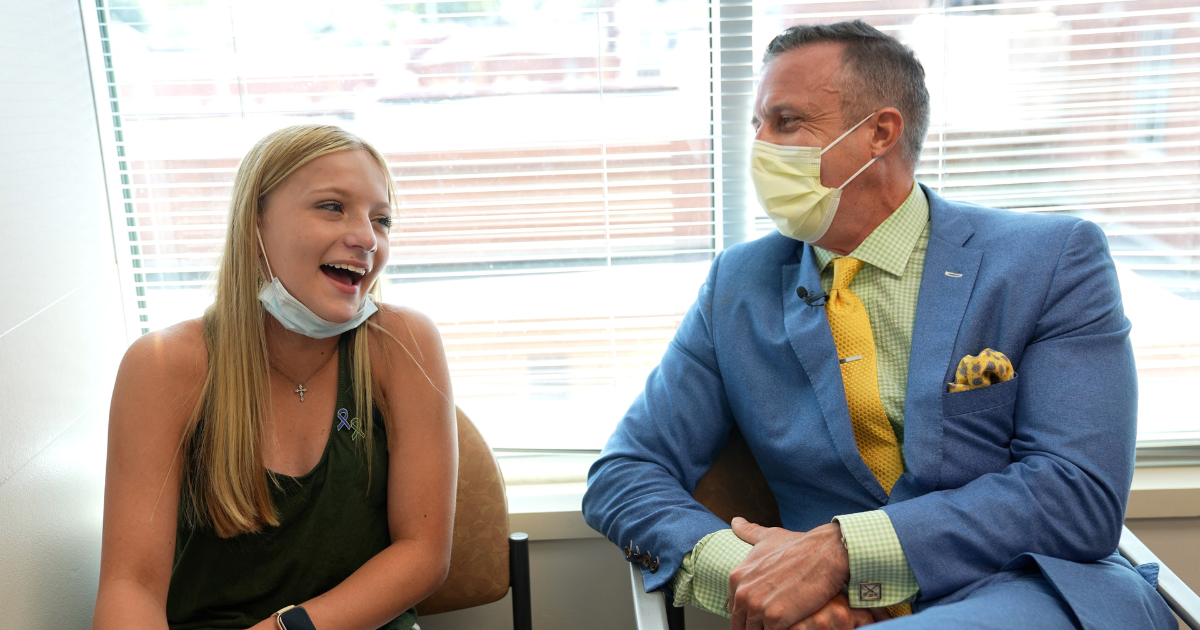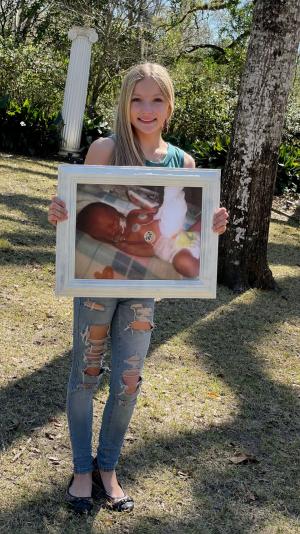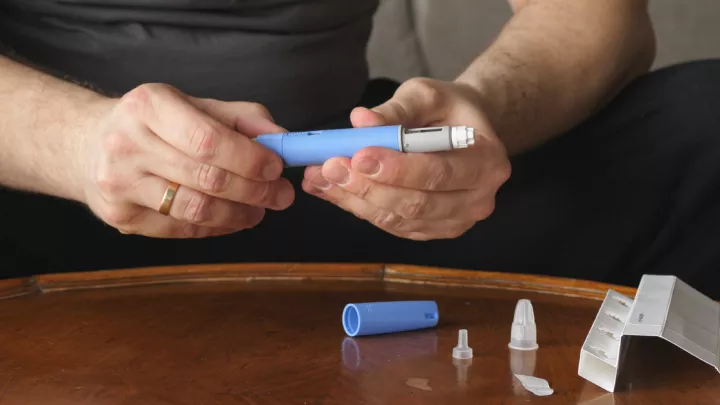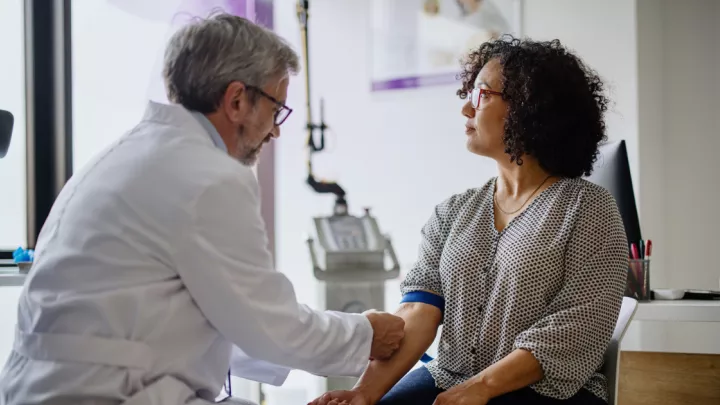56 surgeries later, she's like any other teen

At almost 14 years old, Braylynn has had 56 surgeries since age 2.
“I always wanted to be like other girls in school and go to sleepovers or have spa days, and I couldn’t because I had to go home every night with my machine and backpack,” she said.
Braylynn was born with gastroschisis, a congenital disability in which a hole near the bellybutton in the abdominal wall allows the intestines to extend outside the body. Gastroschisis is very rare and affects an estimated 1 of every 1,953 babies born.
Braylynn and her mother, Maleah Sallinger, were living in Louisiana, where doctors were able to repair the gastroschisis, but this caused her to have short gut syndrome, which leads to a shortened amount of small intestines. Normal babies are born with 250 centimeters of small intestine, but Braylynn was born with 25 centimeters. The shortened intestine did not work properly and couldn’t absorb nutrition the way a normal small intestine would.
“None of the doctors we talked to had any hopes for her,” says Maleah. “One doctor gave us two weeks; another wouldn’t accept her. It seemed like a dead end.”
At just 2 years old and 19 years old, Braylynn and her mom came to Omaha, Nebraska, after hearing a Nebraska Medicine success story. Maleah heard about Nebraska Medicine through Braylynn’s total parenteral nutrition provider. TPN is a method of getting nutrition into the body through intravenous feedings.
“I just knew I had to do something—I was not going to lose my child,” said Maleah. “Whether it was getting 25 opinions from doctors, I had to know I did what I could to save my child.”
Nebraska Medicine transplant surgeon David Mercer, MD, who has been director of the Intestinal Rehabilitation Program since 2008, became Braylynn’s primary doctor. He lovingly refers to her as Bray and recalls how small she was when she came to Nebraska Medical Center.
“She was very sick, and she had a big protuberant tummy with a little skinny body,” recalls Dr. Mercer. “We needed to do something quickly to get her better.”

Dr. Mercer, the nurses and the dietitians fought tirelessly with surgeries and medications to fix what they could of Braylynn’s intestines without the need of a transplant. More and more people joined the team over the years, and they’ve all formed a very tight bond. Their common goal was to get Braylynn better and help her live her best life.
“It was really good that we could all be together through all these years, from her as a 2-year-old to almost 14,” Dr. Mercer explains.
And as the years went on for Braylynn and her family, so did the emotions.
“One day, I’d have a smile on my face, and the next day I’d be crying my eyes out,” recalls Maleah. “It’s just a roller coaster, but the team was always there for support no matter what.”
Today, they have a very close mother-daughter relationship that Maleah attributes to lots of “mom time,” mainly from traveling to Omaha together for so long. Braylynn is able to participate in her favorite activities and can even eat and drink what she wants now. Her interests run the gamut and speak to how well-rounded she is.
“Braylynn is a very country, outdoorsy girl who loves to fish,” says Dr. Mercer. “But she also loves being on the dance team at school, and she’s been in beauty pageants.” Dr. Mercer says Braylynn’s future looks “awesome,” and she’ll only get better and better.
“I feel free, like I can do anything I want,” Braylynn beams. “Dr. Mercer made me so much better, and I’m thankful for that.”





